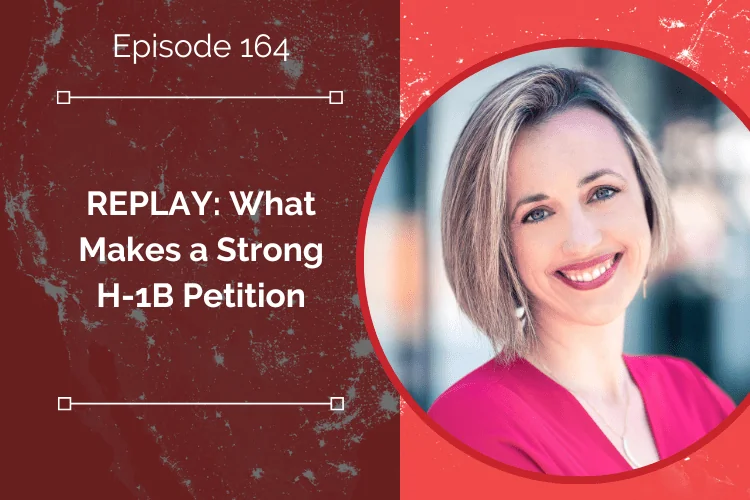Navigating the complex world of H-1B visas can be daunting for tech professionals, startup founders, and HR experts. But with the right insider strategies, you can transform your H-1B lottery selection into a triumphant visa approval. In this post, we will dissect the essential elements of a winning H-1B visa application and arm you with tips to fortify your case against the rigorous scrutiny from immigration authorities.
Understanding the Three Pillars of a Strong H-1B Petition
A strong H-1B visa application rests on three pillars: a legitimate company with a real business need, a professional job that qualifies as a specialty occupation, and a candidate with the appropriate degree or experience. Let’s explore each of these elements in detail.
The Legitimate Company
The company sponsoring the H-1B visa must be legitimate and have a genuine business need to hire a foreign worker. This includes having sufficient work and the financial stability to pay the prevailing wage. Startups, in particular, may need to provide additional documentation such as a business plan or investment evidence to demonstrate their ability to sustain an H-1B employee.
The Specialty Occupation
The job offered must qualify as a specialty occupation, which generally means a role that requires a bachelor’s degree or higher in a specific field of study. Job titles and descriptions should be constructed carefully to meet this criterion and avoid potential requests for evidence challenging the specialty nature of the occupation.
The Qualified Candidate
The H-1B candidate must hold the necessary degree or possess equivalent experience in the relevant field. For those with unconventional degrees or without traditional qualifications, an education and experience evaluation may be necessary to establish equivalency to a U.S. bachelor’s degree.
Crafting a Compelling Job Description and Title
Selecting an appropriate job title and crafting a detailed job description are critical to aligning with the requirements of an H-1B petition. Each line of the job description should reflect duties that necessitate a bachelor’s degree. Avoid general or administrative tasks that could undermine the professional nature of the position.
Navigating the Department of Labor’s Prerequisites
Before filing the H-1B petition with USCIS, employers must obtain a Labor Condition Application (LCA) from the Department of Labor. This step includes promising to pay at least the prevailing wage, ensuring working conditions won’t adversely affect U.S. workers, and providing notice to the company’s workforce.
Preparing for Audits and Requests for Evidence
With increased denial rates and requests for evidence, preparing for potential audits is essential. A public access file should be compiled, containing the LCA, wage documentation, and evidence of the employer-employee relationship. In the event of a request for evidence, having a well-documented case is key to a swift and positive resolution.
Crafting a Backup Plan
Given the unpredictable nature of immigration processes, having a backup plan is prudent. Should the initial H-1B petition encounter issues, alternative visa options or employment strategies should be considered in advance.
Finalizing Your H-1B Petition
In the final stages, employers and legal counsel should double-check all forms for accuracy, determine if premium processing is necessary, and ensure that the candidate maintains legal status if a change of status is sought. A meticulous review process can significantly reduce the likelihood of errors that could lead to a denial.
Achieving H-1B visa approval requires careful planning, attention to detail, and a thorough understanding of immigration law. By investing in a well-prepared petition and leveraging these insider strategies, employers and candidates can significantly improve their chances of securing a future in the U.S. tech industry. Remember, the H-1B process is not just about meeting legal requirements—it’s about demonstrating the unique value and expertise that a foreign professional brings to the American workforce.
If you want to learn more about the Sophie Alcorn Podcast, check out https://www.alcorn.law/podcast/sap164




